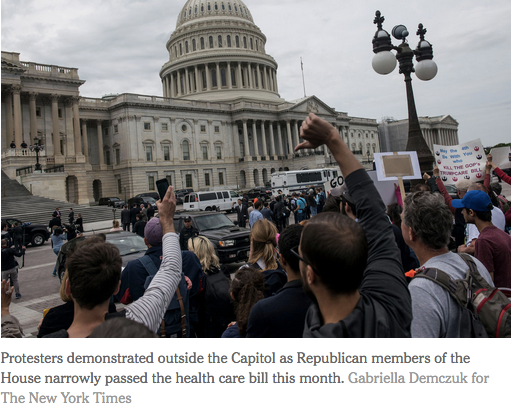House Republican leaders, who pushed the bill through their chamber before the budget office could complete its final estimate, focused on the deficit reduction still on offer. The House bill would reduce federal budget deficits by $119 billion over a decade, less than the $150 billion in savings projected in late March for an earlier version of the bill, but still substantial, Republicans said.
Republicans in Congress generally focus more on reducing health costs than on expanding coverage. Their proposals will inevitably cover fewer people than the Affordable Care Act, they say, because they will not compel people to buy insurance.
But critics zeroed in on a bifurcated health care system that the bill could create: Those who are sick, at risk of getting sick or nearing retirement would pay more, while those who are young and healthy would pay less. In states that obtain waivers from rules mandating essential health coverage at uniform rates, the legislation could put insurance economically out of reach for some sick consumers.
“Unless you’re a healthy millionaire, Trumpcare is a nightmare,” said Senator Chuck Schumer of New York, the minority leader. “This report ought to be the final nail in the coffin of the Republican effort to sabotage our health care system.”
Insurance is, by definition, a pooling of risks, but the budget office said the House bill could cause a fragmentation of the market.




